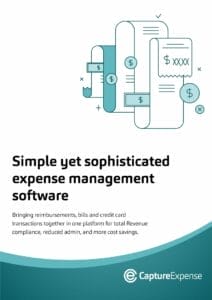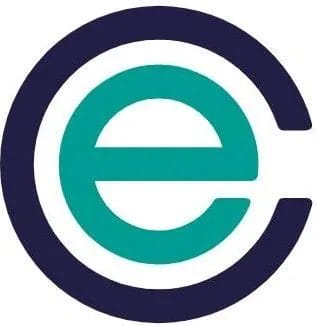Since the Enhanced Reporting Requirements (ERR) kicked in from January 2024, businesses in Ireland had to make some key changes to how they manage and report on expenses.
The new rules are all about improving transparency and making sure the right information is reported to Revenue, and they impact three key things; remote working allowances, small benefits, and travel expenses.
So, what does this mean for your business, and how can you stay fully compliant? Let’s break it down.
What are the Enhanced Reporting Requirements (ERR)?
ERR is a new way of making sure businesses in Ireland report specific employee expenses more accurately. If your company provides allowances for remote working, offers small benefits like gift cards, or reimburses employees for travel and subsistence, you need to report these more precisely to Revenue.
Here’s a closer look at what needs to be reported under Enhanced Reporting Requirements:
- Remote working allowances: If your team is working from home—whether it’s full-time or hybrid—you might be covering some of their home office costs like electricity, heating, or broadband. ERR means you’ll need to keep track of:
-
- How much you’re paying employees to cover these costs.
- Whether the payments stay within Revenue’s tax-free limit (currently €3.20 per day).
- Reporting any amounts over that limit, as they’ll need to be taxed
-
- Small benefits exemption: Many businesses like to offer non-cash benefits—things like gift vouchers or rewards—as part of their employee perks. Under ERR, you’ll now need to:
- Report the value of any small benefits provided to your staff.
- Ensure the total value stays under the current exemption limit (which is €1,000 per year).
- If any employee’s benefit goes over the limit, the excess will need to be included in their taxable income.
- Travel and subsistence: If your employees are on the road for work—whether it’s for meetings, conferences, or client visits—ERR changes how you report travel allowances. You’ll need to:
- Track and report the amounts paid for travel and subsistence, such as meals, mileage, and accommodation.
- Ensure the payments align with Revenue’s daily subsistence rates.
- Report any amounts above those approved limits, as they’ll be taxable.
Managing employee expenses has always been important, but now, with ERR, the stakes are higher. The key here is accuracy. If you’re offering remote working allowances or covering travel costs, you’ll need to get those details right and report them promptly. Not doing so can lead to compliance issues, tax liabilities, and even penalties from Revenue.
How to submit your ERR
All ERR reports need to be submitted through Revenue’s Online Service (ROS); the platform that allows you to upload your data and make sure it’s filed correctly. If you’re already familiar with ROS for other tax reporting, it’ll be a smooth transition to include ERR data here as well.
It’s worth noting that one of the key changes is the need for real-time reporting. This means you’ll need to submit the relevant data to Revenue every time you process remote working allowances, small benefits, or travel reimbursements.
How does ERR impact your business?
The biggest change is how closely you monitor and report these expenses. You’ll need to keep a detailed record of all qualifying payments and make sure they’re reported accurately each time. Whether your expenses are managed in-house or through an external provider, you’ll need to make sure your systems are up to the task of meeting these new reporting obligations.
Here’s three areas you can focus on to keep on track:
- Tracking allowances and benefits: Every remote working allowance, travel reimbursement, or small benefit needs to be tracked. Make sure these payments fit within the limits set by Revenue, and any over-the-limit amounts are flagged as taxable.
- Reporting in real-time: It’s no longer just about logging expenses for internal records; ERR means you need to report this information in real-time to Revenue. This helps makes sure all your spend is up-to-date and compliant.
- Being prepared for audits: With the new focus on transparency, Revenue will have a clearer picture of how businesses handle employee expenses. This means audits could become more frequent, so having clean, accurate records will be key.
How to easily manage your Enhanced Reporting Requirements
To stay ahead of ERR, here’s what your business can do:
- Review your current expense policies: Take a look at how you’re currently managing remote working allowances, small benefits, and travel expenses. Are they properly documented and within the allowable limits?
- Upgrade your software: If you’re not already using digital tools for tracking employee expenses, now’s the time to invest. Automated systems can help you capture and report the required details accurately and efficiently, and automatically generate the reports for you.
- Stay informed on Revenue guidelines: Revenue’s guidelines on tax-free limits and approved daily rates change from time to time. Make sure your team is up-to-date on the latest rules, so you can stay compliant without any surprises.
- Educate your teams: Whether it’s HR, finance, or your employees themselves, everyone needs to understand the changes ERR brings. Ensure teams are trained on how to handle, track, and report expenses under the new rules.
Expense Management in Ireland
How to generate accurate ERR reports and comply with Revenue
30 minutes

Business Development Manager
Struggling with ERR?
Capture Expense is built to manage your Enhanced Reporting Requirements, along with other features designed to keep you Revenue compliant across all areas like mileage and subsistence.
Automatically generate reports tailored specifically for Irish Revenue reporting, including all the necessary data across remote working allowances, small benefits, and travel expenses – so you have everything you need to stay compliant, without the manual work.

Capture Expense Ireland Brochure
Unlock the power of real-time spending insights across your entire organisation. Dive into our brochure to discover how you can stay on top of reimbursements, bills, and credit card transactions as they happen, ensuring smarter financial decisions.

